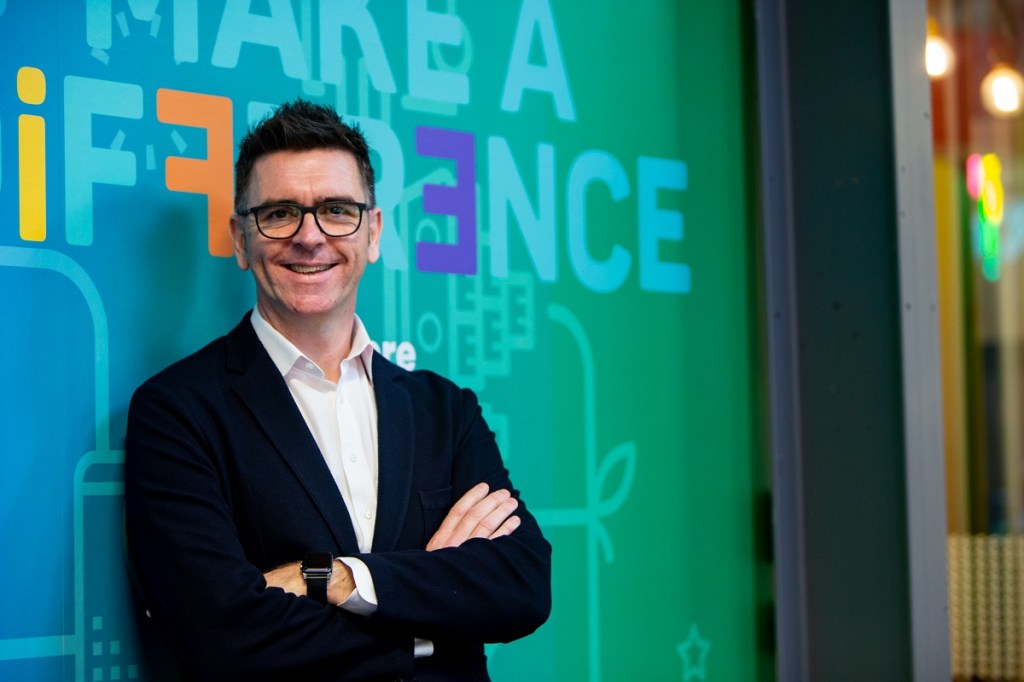The impacts of climate change are being felt and seen around the world in devastating measures, from flooding in India, droughts in Europe, to bushfires here in our own backyard.
With concern growing about how to not only manage, but prevent, these catastrophes, companies are under increasing pressure to reduce their impact towards climate change.
Over the coming weeks, C&I will speak to various companies on their sustainability commitments and how they plan to meet the targets they’ve set.
This week we spoke with Cameron Davidson, Chief Consumer Officer, Frucor Suntory.
C&I: Could you outline the key commitments Frucor Suntory has made as part of its sustainability roadmap?
Davidson: Alongside our parent company Suntory, we’ve set ourselves ambitious targets to ensure our environment is fit for the future. We are actively working towards achieving these five goals by 2030: zero waste to landfill, 100 per cent recyclable packaging, reduce our carbon (CO2) emissions by 35 per cent, reduce water usage by 20 per cent and for one in three drinks we sell will be no or low sugar.
C&I: How will Frucor Suntory go about living up to these commitments?
Davidson: Delivering on our commitments to sustainability relies on taking action in every part of our business. Since 2017, we have made great progress across all areas of our sustainability agenda and implemented several projects that are delivering and encouraging results. We have a comprehensive calendar of activities building on the progress we’ve made so far – specifically a continued focus on developing opportunities and solutions to the issues of packaging and climate change. This involves a shift towards a circular economy, and ongoing efforts to decarbonise our operations.
C&I: How are you measuring your progress?
Davidson: By working closely with internal and external partners, we measure progress towards our 2030 sustainability goals annually.
To help us accurately measure our CO2 emissions, we require all suppliers, site managers and manufacturers to provide us with regular internal and external reports. Since 2017, we have been working alongside Toitū Envirocare, who actively – and independently – measure and assess us to make sure we’re making progress towards our CO2 target.
Last year, we also stepped up our commitment to reducing our CO2 emissions by becoming a member of Te Ro-pu- Ko-kiri – a subgroup within Toitū – made up of a cross-section of organisations. As part of this working group, we have collectively helped prevent 55,979 tonnes of carbon dioxide equivalents – that’s the same as taking 33,000 cars off Auckland’s streets for a year. Put another way, to offset 55,979 tonnes with quality New Zealand forestry credits would cost over $2.7 million.
C&I: Has implementing sustainability measures affected revenue?
Davidson: It’s simply too early to say. There have been costs and savings with rolling out new procedures, creating new partnerships and investing in technology to help us meet our sustainability goals. We believe it’s our social responsibility to have a positive impact on the world around us, and we want to make sustainability an easier choice for consumers and commercial partners.
C&I: How important is creating a more sustainable food system for Frucor Suntory?
Davidson: As a part of Suntory, we actively strive to do the right thing alongside our business, supply chain and supplier partners to help create a truly affluent and sustainable society. By doing this we’re able to identify social and environmental issues, promote sustainability initiatives that enable us to grow together and offer our customers high-quality products that are not only safe, but reliable.
To help realise our ambition to create a more sustainable society, we abide by the Suntory Group Supplier Guidelines and work alongside Suntory’s Global Procurement Promotion Division to help promote sustainable procurement across the globe.
Under Suntory, we are members of Sedex, the largest supplier ethical information sharing platform for corporate ESG data in the world. Through this platform, we are engaging our suppliers and gathering key information regarding social and environmental compliance.
By leveraging the tools provided by Sedex, we have strengthened our supplier management capability, enabling us to visualise and monitor the environmental and social risks faced by our suppliers.
C&I: Is there anything else you’d like to mention about Frucor Suntory’s sustainability roadmap and its achievements to date?
Davidson: We’ve made significant progress towards achieving our sustainability goals. Our move from shrink-wrap to cardboard will help us to remove 2.7 million pieces of plastic from going to landfill each year. We’ve introduced and reformulated many of our products, offering low and no-sugar varieties. By introducing energy-efficient fridges and hybrid vehicles, we’re making headway in lowering our carbon emissions.
Last year we installed an Air Rinser at our Auckland manufacturing site which will help us to save around 12 million litres of water annually. We’ve taken further steps to introduce more rPET and lightweight packaging. We’ve begun work on moving our carbonated beverages to recycled PET, removing shrink-wrap from our multipacks. We’re continuing to remove the colour from some of our PET, like our V Iced Coffee bottles. Plus! We’re working hard to divert waste from going to landfill in all areas of our business, from our office to the beverages consumers see in fridges and on shelves.

